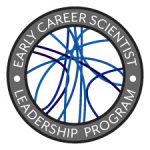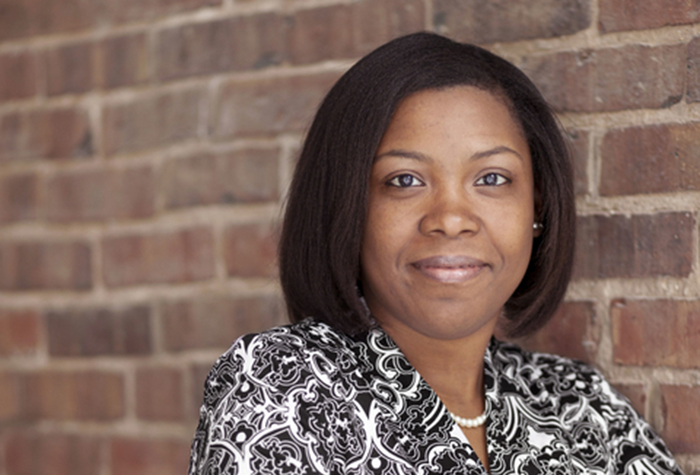 Kelley Harris is the Biology Major Program Manager at the University of Wisconsin – Madison. Strong mentorship and her graduate training prepared Kelley for this multifaceted position that includes advising, administration, and communication.
Kelley Harris is the Biology Major Program Manager at the University of Wisconsin – Madison. Strong mentorship and her graduate training prepared Kelley for this multifaceted position that includes advising, administration, and communication.
In the Decoding Life series, we talk to geneticists with diverse career paths, tracing the many directions possible after research training. This series is brought to you by the GSA Early Career Scientist Career Development Subcommittee.
As an undergraduate, Kelley Harris was encouraged by mentors to pursue her interest in genetics. Now, as the Biology Major Program Manager at the University of Wisconsin-Madison, Kelley encourages students to identify their strengths and choose their future. Kelley uses skills she learned from managing multiple projects during her PhD to balance the many responsibilities of her current role, from advising students to coordinating with university leadership. She also applies them to maintaining work-life balance.
When did you know you wanted to be a geneticist?

Harris on the very first day of graduate school, full of excitement and enthusiasm.
I came to that determination fairly early in my undergraduate experience. I started college on the pre-med track, and I chose to attend Xavier University of Louisiana, which is a small, historically black college and university that is highly ranked for sending African Americans to medical school. I was mesmerized in my freshman introductory biology class when we covered molecular biology, heredity, transmission genetics, developmental biology, and population genetics. I was excited about these topics and really hungry to learn more. It took a while to embrace this new identity as a scientist and make the decision not to go to medical school. I am a first-generation college student, so I felt a lot of responsibility and pressure to be the first “doctor” in the family, and I worried I was going to disappoint them by choosing a career path other than medicine.
What was your biggest driving force to succeed?
Poverty! I grew up poor, and I did not want to live poor as an adult. I wanted to have a family, and I wanted to give them a life I didn’t have. Tuition at Xavier was expensive, and I was on a scholarship, so I knew failure was not an option. It was either success or poverty, and I knew I didn’t want the latter as an outcome. I worked really hard to succeed both in undergrad and as a graduate student. I still feel some of that pressure today; even though I’m financially secure and a long way from poverty, that experience changes you, and the fear will always stay with you on some level.
What do you do, and what does a typical day at work look like for you?
I provide day-to-day management for the Biology Major Program at the University of Wisconsin-Madison, which is a unique academic program that is shared across two colleges. My role consists of supervision and leadership, academic advising, administrative duties, and cross-campus communication. I have budgetary and curricula management duties, and I am a key liaison for the leadership team, which consists of myself and two faculty co-chairs from each college within the biology program. My days can vary a lot, which is great for my personality type as I like to be working on different things during the course of the day. It helps me move all of my projects forward in a timely manner.
Our program is at the center of making decisions with respect to course access issues and exploring opportunities for our bioscience students. We also evaluate how changes in other aspects of campus life and the university will impact our students. In this role, I have conversations with faculty, staff, academic deans, vice provosts, and senior level leadership to ensure we best meet the needs of our students.
What are some valuable skills you acquired during graduate training?
Being comfortable not knowing something. It took me a while to be okay with saying “I don’t know,” but now I say it all the time! It’s important to recognize what you don’t know and to let it motivate you. Most importantly, I learned how to develop a solid question, identify what I need to learn, collect and interpret the data, and then communicate these ideas to a variety of audiences. Grad school also taught me to successfully work on multiple projects at the same time. I’ve relied on these skills throughout my career, and they have allowed me to be successful in roles outside of the lab.
How have mentors influenced your career, and what advice do you have for trainees on seeking out mentorship?
I’ve been really fortunate to have amazing mentors, which is one of the reasons I like working in student services. It was my undergraduate advisor who gave me the “permission” to be and own who I wanted to be when I had so much external pressure telling me to be something else. My mentoring philosophy is to provide students with all of the relevant information needed to make a decision and then to give them the freedom to choose. I’m a big fan of solution-based therapy, and I adapt some of these methods for advising.
Trainees should build a core network of mentors that have a range of expertise in terms of training and career. I have a diverse group of mentors, each with unique perspectives and experiences that I can call on. I have gained insight into their various career paths and how they’ve gotten there. It’s important to have a network of individuals who genuinely care about you and are willing to support your career. I encourage students to build a network of mentors that includes people who look like them (which is something each person can define for themselves) and people who don’t. The important thing is that all mentors have a sincere interest in your success.
How does your life outside of science influence your career?
My daughter is my absolute top priority. I’ve missed important meetings because I’ve had to be with my daughter when things come up that can’t be planned for—like illness. On the other hand, I’ve also missed activities at her school because I had an important meeting. Some days I lean very far into the work zone, and some days I’m very far into the family zone. I’m okay with that because I think it balances out for me. It is important to set boundaries and be transparent about having a family; you want your employer to know you have a life outside of work. Graduate school taught me how to rotate priorities, so while my daughter is my top priority, I want her to understand that her mother has many identities, including being a scientist and a professional. It’s important for her, as a young woman, to see that.
About the author:
![]() Elaine Welch is a liaison on the Early Career Scientist Career Development Committee and is an Associate Human Molecular Geneticist at PreventionGenetics. In addition to her work in clinical genetics, Elaine is committed to mentoring early career scientists—especially those belonging to underrepresented minority groups—to help them successfully transition from academic training to varied career paths.
Elaine Welch is a liaison on the Early Career Scientist Career Development Committee and is an Associate Human Molecular Geneticist at PreventionGenetics. In addition to her work in clinical genetics, Elaine is committed to mentoring early career scientists—especially those belonging to underrepresented minority groups—to help them successfully transition from academic training to varied career paths.
Learn more about the GSA’s Early Career Scientist Leadership Program.













